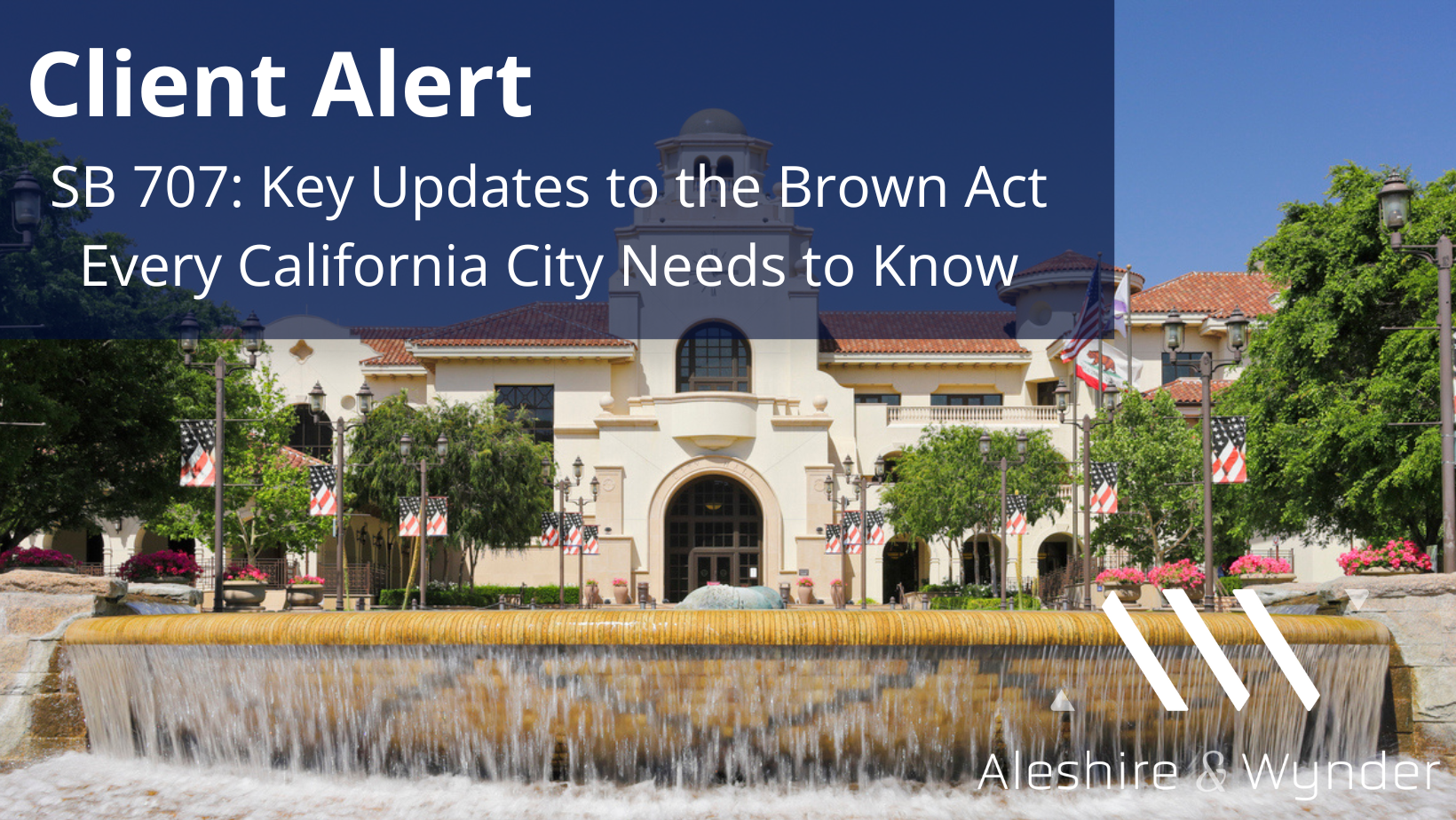SB 707: Key Updates to the Brown Act Every California City Needs to Know

SB 707: Key Updates to the Brown Act Every CA City Needs to Know
|
SB 707 was signed by Governor Newsom on October 3, 2025. Among several other changes, this bill revises the Brown Act’s teleconferencing requirements and contains new rules regarding accessibility for disabled and non-English speaking communities. SB 707 maintains existing Brown Act teleconferencing rules, such as posting agendas at all locations, and providing public access to each site. The bill applies certain new rules to “eligible legislative bodies” effective July 1, 2026, defined as city councils in cities with populations of 30,000 or more, city councils in counties of 600,000 or more people, and certain large special districts. The bill reorganizes and expands teleconferencing provisions, incorporates prior “just cause” rules (AB 2449) and “emergency circumstances” rules (AB 361), and extends their applicability through January 1, 2030. Some Key Changes:
This client alert provides a brief summary of some provisions of SB 707. Please contact us for further guidance in understanding and implementing all requirements of the new law. We are here to support you in ensuring your public meetings remain compliant with the updated Brown Act Requirements. Aleshire & Wynder LLP provides unparalleled legal representation to local communities throughout California. Our attorneys have been loyally serving public agencies for over 50 years. For further information, please contact Vrunda Shah of Aleshire & Wynder, LLP’s at vshah@awattorneys.com or visit our website at awattorneys.com. |
* Specific loan program availability and requirements may vary. Please get in touch with your mortgage advisor for more information.